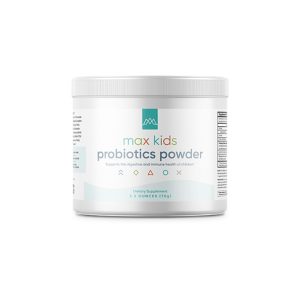While few expectant mothers electively plan a C-section, 32% of babies born in the United States are delivered via caesarean. This presents a variety of health concerns, but one you may not have considered is the effect that the birth process has on your baby’s gut bacteria.
When babies are delivered vaginally, they are exposed to their mother’s bacteria in the birth canal which begins the growth of their own balanced bacteria system, while a baby born via C-Section is delivered in a sterile environment. Additionally, bacteria may be further unbalanced by routine antibiotics administered during C-sections which transfer to the baby through the placenta.
Recent studies have shown that babies delivered via C-section are consistently lacking in good gut bacteria and are frequently high in harmful bacteria strains commonly found in hospitals, some of these differences still noticeable even months after birth. (1)
The head of one study on the subject, Associate Professor Paul Wilmes of the University of Luxembourg, states “Of course, it is already clear that we should not intervene too strongly in the birth process. Babies should only be delivered by caesarean section when it is medically necessary. We need to be aware that, in doing so, we are apparently intervening massively in the natural interactions between humans and bacteria.” (2)
A healthy balance of bacteria in the gut is essential for a strong immune system, protection against disease, and even brain development. (3) This may contribute to why babies born via C-section are at higher risk for allergies, asthma, type 1 diabetes, and obesity (4).
Knowing the importance of a healthy gut, what can do you?
Before baby is born
Eat a diet rich in healthy and cultured foods. This supports your own gut health which will in turn support your baby’s. It can also reduce your risk of being GBS positive, which is another frequent cause for IV antibiotics being administered during labor. (5)
Set yourself up for your best birth! C-sections can be lifesaving, but in the U.S. they happen more frequently than medically necessary. To reduce your likelihood, do some research. Look into having a home birth (6). If you’re delivering at a hospital, know your hospital’s C-section rate, and be sure your health care provider is as committed as you are to having a vaginal birth. If you’re delivering in a hospital, seriously consider hiring a doula as well – there a many benefits, a reduced likelihood of C-section being one of them. (7)
Get adjusted! Seeing a chiropractor who is experienced in adjusting pregnant women can help your baby get into an ideal position for birth, minimizing your risk of a C-section due to breech positioning or stalled labor.
After baby is born
One of the greatest ways to improve both your own and your child’s future health is breastfeeding. (8) Breast milk supports the growth of good bacteria and prevents the growth of bad bacteria in your baby’s digestive tract. Skin to skin contact during breastfeeding and otherwise helps baby’s body build up good bacteria as well.
While breastfeeding is natural, it doesn’t always come naturally. Before your baby is born, take a breastfeeding class, and get the number of a good lactation consultant to have on hand for when you need it. Look for a local La Leche League to join – support of other breastfeeding moms can go a long way towards reaching your goals. The longer you continue breastfeeding, the greater benefit your baby can receive.
Once baby is one year old, they can begin taking a quality probiotic. Max Kids Probiotic Powder contains prebiotics and 6 billion CFU per serving and is a great option for building up the good bacteria they need. This is important if they ever need to be on an antibiotic as well, to build things back up afterwards. This convenient powder is unsweetened and unflavored, perfect for adding to your kids’ food and drinks.
Continue building up good bacteria in your baby’s gut with the food they eat. Civilizations throughout history have supported their health by consuming cultured foods with good bacteria. Sauerkraut, kombucha, umeboshi, kefir, and naturally fermented pickles (like Bubbie’s), are all examples. You can find them at many grocery stores, or make your own. Once your baby begins eating solid foods, include fermented foods in their diet. Starting them young can help their taste buds become accustomed to the variety of flavors.
As you take steps to build up a healthy gut, you are building a healthy future.
References
[1]https://www.nature.com/articles/d41586-019-02807-x
[2]https://www.sciencedaily.com/releases/2018/11/181130094328.htm
[3]https://articles.mercola.com/sites/articles/archive/2020/03/07/microbirth.aspx
[4]https://www.thelancet.com/journals/lancet/article/PIIS0140-6736(18)31930-5/fulltext
[5]https://northernstardoula.com/blog/group-b-strep-pregnancy
[6]https://articles.mercola.com/sites/articles/archive/2020/03/25/home-births.aspx
[7]https://evidencebasedbirth.com/the-evidence-for-doulas/
[8]https://articles.mercola.com/sites/articles/archive/2011/08/26/probably-best-way-to-enhance-your-babys-gut-and-brain-development.aspx




